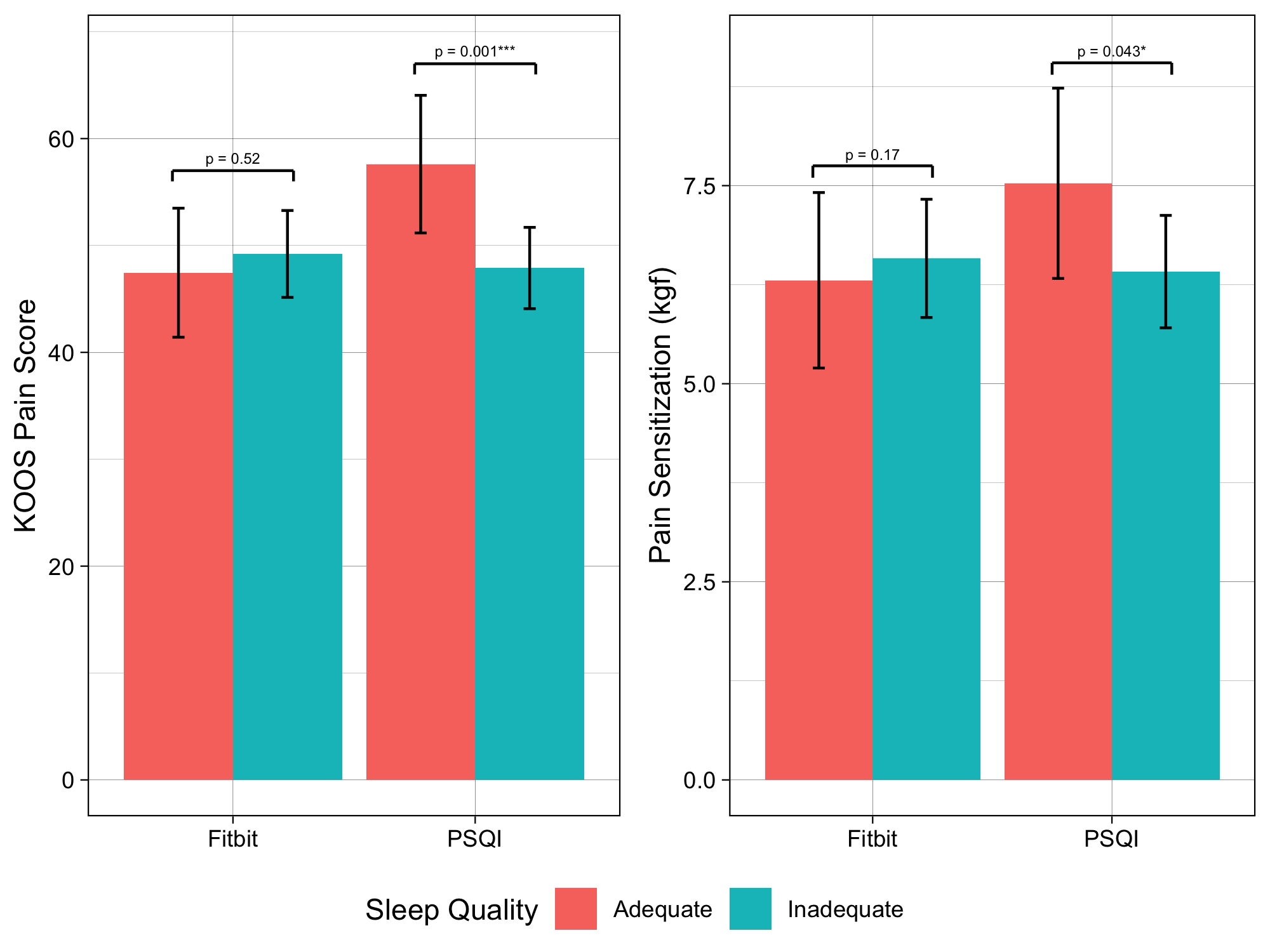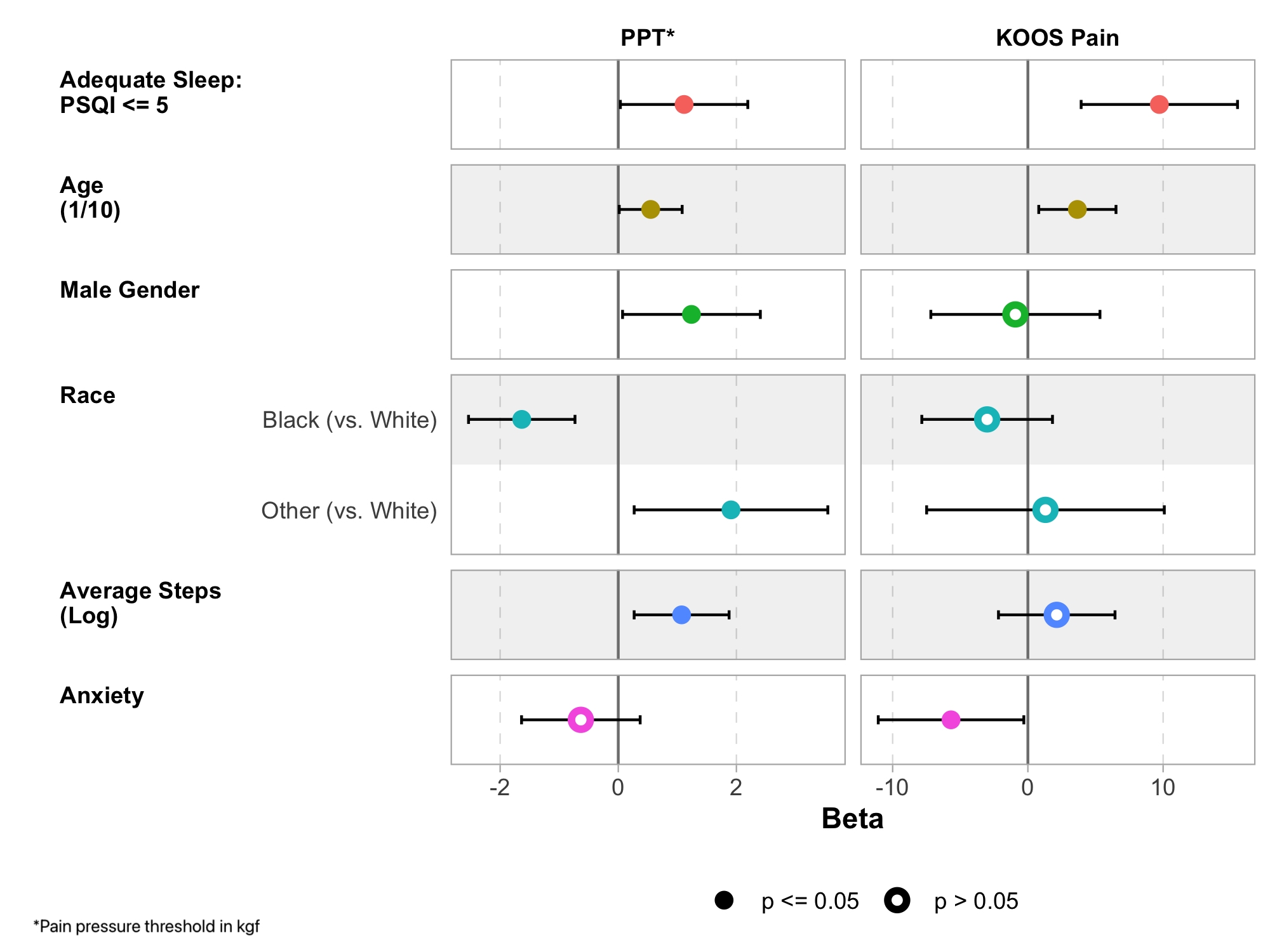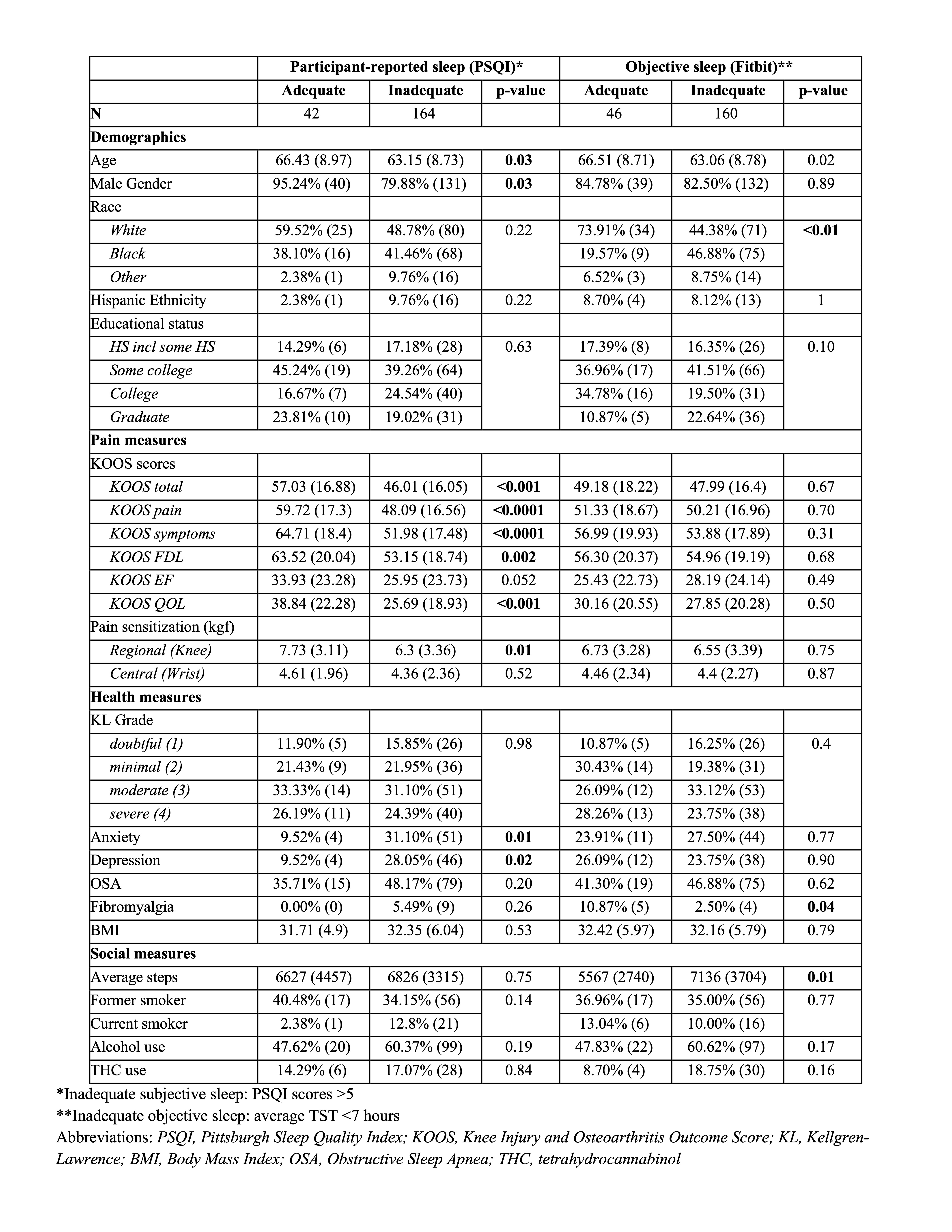Session Information
Date: Saturday, November 16, 2024
Title: Abstracts: Osteoarthritis – Novel Insights from Observational Studies
Session Type: Abstract Session
Session Time: 3:00PM-4:30PM
Background/Purpose: Inadequate sleep is associated with a range of poor health outcomes, including chronic health conditions, mood disorders, and all-cause mortality. There is some evidence that sleep-related problems contribute to chronic pain disorders, but the relationship between sleep and pain remains poorly defined, particularly among patients with knee osteoarthritis (KOA). To our knowledge, prior studies have not evaluated the association between patient-reported and objective sleep measures with pain among people with KOA.
Methods: We evaluated baseline data from 206 Veterans with KOA in a clinical trial designed to examine the effect of physical activity incentives and corticosteroid injections on patient-reported pain and function. During a pre-randomization enrollment period, sleep was measured using the validated patient-reported Pittsburgh Sleep Quality Index (PSQI) and objective sleep duration by wrist activity monitors (Fitbit). PSQI scores above 5 and average total sleep time (TST) less than 7 hours were considered ‘inadequate’ based on prior definitions. Self-reported knee pain and objectively measured regional pain sensitivity were assessed with the Knee Injury and Osteoarthritis Outcome Score (KOOS) and pain pressure threshold testing (PPT) on the participant-identified worse knee, respectively. KOA severity was measured by the Kellgren-Lawrence (KL) grading system. We used linear regression to model the unadjusted and adjusted relationship between sleep measures and pain outcomes. We also explored other predictors of patient-reported pain and pain sensitization in models adjusted for age, gender, race, anxiety, and average daily step count.
Results: Inadequate sleep was common; 164 (80%) and 160 (78%) met criteria by subjective and objective assessments, respectively. Agreement between subjective and objective sleep was poor (κ 0.01). Individuals with inadequate sleep by PSQI were younger and more likely to have anxiety and depression and had significantly worse PPT at the knee. Those identifying as Black or another race were more likely than White individuals to have inadequate objective sleep by TST, as were those with fibromyalgia, higher average step counts, and higher KOOS (Table 1).
In adjusted models, participant-reported sleep was significantly associated with pain sensitivity (PPT) and pain severity (KOOS pain), while objective sleep was not associated with either measure (Figure 1). The diagnosis of anxiety significantly increased KOOS pain but not PPT. Both were ameliorated by age (Figure 2).
Conclusion: Most participants had inadequate sleep by both participant-reported and objective measures, illustrating extent of poor sleep among Veterans with KOA. The report of poor sleep, but not objective assessments of inadequate sleep duration, was associated with worse pain and worse regional pain sensitivity. These observations suggest that perception of poor sleep is more relevant to how patients with KOA experience pain. Anxiety and depression were associated with poorer sleep and were the largest contributors to worse self-reported pain. Further research should elucidate additional mediators and potential interventions for patients with KOA who report poorer sleep.
To cite this abstract in AMA style:
Azizi D, Wetzel S, Olave M, Gillcrist R, Brubeck H, White D, Scanzello C, Neogi T, Ogdie A, England B, Quinones M, Wysham K, Baker J. Z’s and Knees: Associations of Participant-reported and Objective Sleep Measures with Pain Among US Veterans with Osteoarthritis of the Knee [abstract]. Arthritis Rheumatol. 2024; 76 (suppl 9). https://acrabstracts.org/abstract/zs-and-knees-associations-of-participant-reported-and-objective-sleep-measures-with-pain-among-us-veterans-with-osteoarthritis-of-the-knee/. Accessed .« Back to ACR Convergence 2024
ACR Meeting Abstracts - https://acrabstracts.org/abstract/zs-and-knees-associations-of-participant-reported-and-objective-sleep-measures-with-pain-among-us-veterans-with-osteoarthritis-of-the-knee/



